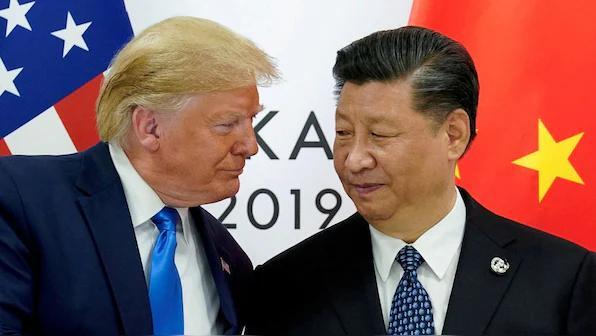
China Refuses to Join Denuclearisation Talks with US & Russia
In a recent development, China has declined to participate in trilateral denuclearisation talks with the United States and Russia, rejecting President Donald Trump’s call to include Beijing in future negotiations. The Chinese Foreign Ministry Spokesperson, Guo Jiakun, stated that the expectation of China’s participation in such talks is “neither reasonable nor realistic” due to the significant disparity in nuclear capabilities between China and the US.
This decision comes as a significant setback for the global efforts to reduce nuclear arsenals and promote disarmament. The US and Russia have been engaged in a series of talks aimed at reducing their nuclear stockpiles, with the goal of achieving a world free of nuclear weapons. However, China’s refusal to participate in these talks has raised concerns about the effectiveness of these efforts.
China’s stance on denuclearisation has been shaped by its own security concerns and strategic interests. As the world’s most populous country, China is sensitive to any perceived threats to its sovereignty and territorial integrity. In the context of nuclear disarmament, China is wary of any agreements that could compromise its own nuclear deterrent capabilities.
The Chinese Foreign Ministry Spokesperson, Guo Jiakun, emphasized that China and the US are not at the same level in terms of nuclear capabilities, and therefore, it is not feasible for China to join the denuclearisation talks. This statement highlights the significant disparity in nuclear arsenals between the two countries. While the US and Russia possess thousands of nuclear warheads, China’s nuclear arsenal is significantly smaller, with an estimated 290 warheads.
China’s refusal to participate in the denuclearisation talks is also seen as a response to the US’s efforts to push China to reduce its nuclear capabilities. The US has long been critical of China’s nuclear modernization program, which has seen significant investments in new nuclear-capable missiles and submarines. The US has argued that China’s nuclear expansion is a threat to regional stability and global security.
However, China has defended its nuclear modernization program as necessary for its national security and territorial integrity. China has emphasized that its nuclear deterrent is designed to deter potential threats from the US and other countries, rather than being used as a tool for aggression.
The Chinese Foreign Ministry Spokesperson, Guo Jiakun, also stated that China is willing to engage in bilateral talks with the US and Russia on nuclear issues, but only on an equal footing. This statement highlights China’s reluctance to be pressured into accepting a one-sided agreement that compromises its own nuclear deterrent capabilities.
In conclusion, China’s refusal to join the denuclearisation talks with the US and Russia is a significant development in the global efforts to reduce nuclear arsenals. While the US and Russia have been engaged in talks aimed at reducing their nuclear stockpiles, China’s refusal to participate has raised concerns about the effectiveness of these efforts. China’s stance on denuclearisation is shaped by its own security concerns and strategic interests, and it is unlikely to change its position in the near future.
As the world grapples with the challenges of nuclear disarmament, it is essential to engage in meaningful and inclusive discussions that address the concerns of all parties involved. The refusal of China to join the denuclearisation talks highlights the need for a more nuanced and comprehensive approach to reducing nuclear arsenals.



